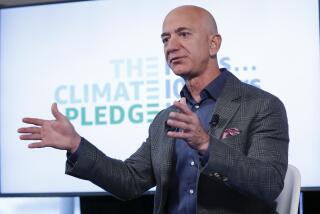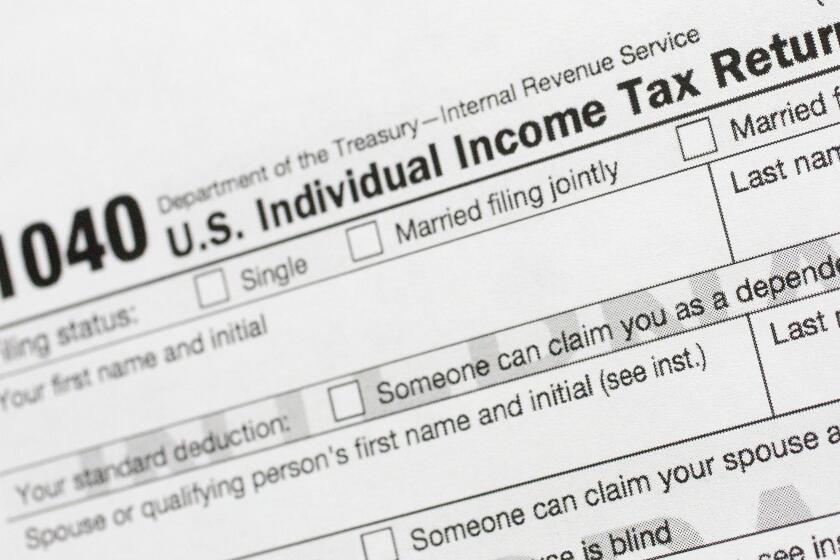Apple’s Steve Jobs conspired on e-book price-fixing, lawsuits say
This post has been corrected. See note below.
WASHINGTON -- Former Apple Inc. Chief Executive Steve Jobs and top executives at five major book publishers illegally conspired to raise the prices of e-books, costing consumers tens of millions of dollars, federal and state officials alleged in antitrust suits filed Wednesday.
The collusion began in 2009 and price fixing took effect with the launch of the iPad in early 2010, boosting the average cost of e-books by $2 to $3 each “virtually overnight,” said Sharis Pozen, the acting head of the Justice Department’s antitrust division.
“We allege that these executives knew full well what they were doing. That is, taking steps to make sure the prices consumers paid for e-books were higher,” she said in announcing the federal suit.
“‘The customer pays a little more, but that’s what you want anyway,’” Pozen quoted Jobs as saying at one point in the negotiations with publishers.
The suit said Apple proudly described the price-fixing plan -- which gave the iPad maker a guaranteed 30% commission on each e-book it sold through its online marketplace -- as an “aikido move,” referring to the Japanese martial art.
The suit, and another by 16 state attorneys general, was filed against Apple, Simon & Schuster Inc., Hachette Book Group, HarperCollins Publishers, Macmillan and Penguin Group.
Hachette, HarperCollins and Simon & Schuster reached a settlement with the Justice Department that would require them to allow retailers such as Amazon and Barnes & Noble to reduce the prices of e-books they sell from the publishers, the Justice Department said.
The settlement, if approved by a federal judge, would restore competition to the e-book market, Pozen said.
In addition, Hachette and HarperCollins agreed to settle the states’ lawsuit and pay a total of about $51 million in restitution to e-book customers nationwide. The states are still negotiating restitution with Simon & Schuster.
Apple, Macmillan and Penguin did not agree to a settlement, and Pozen promised the Justice Department would purse the case against them vigorously.
Macmillan CEO John Sargent denied the charges in an open letter posted Wednesday on Tor.com, one of the publisher’s imprints.
“Macmillan did not collude,” he wrote.
An Apple spokesman said the company had no comment on the suits.
Amazon cheered the lawsuits and the settlements. The suit portrayed Amazon, which makes the Kindle e-reader, as a victim of the price-fixing because they could not charge lower prices and ostensibly lost e-book sales to Apple.
“This is a big win for Kindle owners, and we look forward to being allowed to lower prices on more Kindle books,” the company said.
The federal suit, filed in U.S. District Court in New York, alleged that the publishers began illegally working together in the summer of 2009 to raise prices in response to Amazon’s offering of e-books for $9.99 each.
They joined with Apple in 2010 to create a system that boosted the prices of books to $12.99 or $14.99, the suit said.
Apple and the publishers “reached an agreement whereby retail price competition would cease (which all the conspirators desired), retail e-book prices would increase significantly (which the publisher defendants desired) and Apple would be guaranteed a 30% ‘commission’ on each e-book it sold (which Apple desired),” the suit said.
For the record, 3:50 p.m. April 11: An earlier version of this post misspelled the last name of the chief executive of Macmillan. His name is John Sargent.
RELATED:
E-books price fixing? Book ‘em
Scott Turow: Apple didn’t collude, it offered an e-books life raft
U.S. reportedly warns Apple, e-book publishers about price-fixing
More to Read
Inside the business of entertainment
The Wide Shot brings you news, analysis and insights on everything from streaming wars to production — and what it all means for the future.
You may occasionally receive promotional content from the Los Angeles Times.











